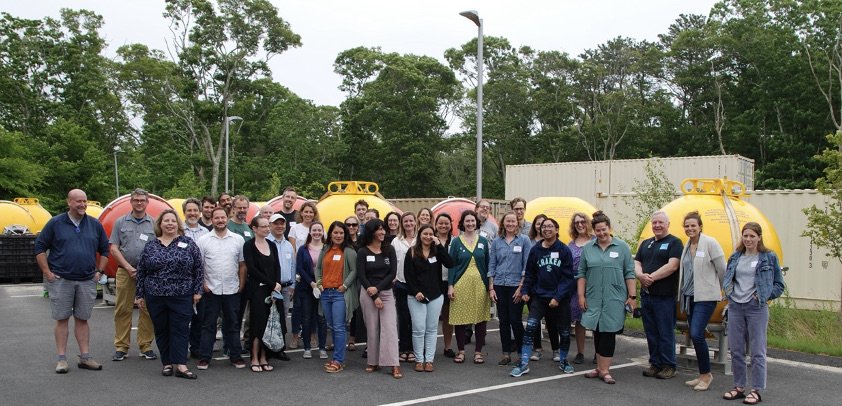This article features the work of lab group members Jake Supino and Emily Chua using autonomous biogeochemical sensors to study tidal salt marsh carbon cycling at the Seven Mile Island Innovation Lab (SMIIL) in Cape May, New Jersey
This article describes the OOI Biogeochemical Sensor Data Workshop, co-organized by Palevsky as part of a 2-year Working Group effort to develop and share best practices for using these data and attended by lab group members Kristen Fogaren, Meg Yoder, and Jose Cuevas.
Recording of a virtual presentation given by Palevsky in 2020 as part of the “Next in Water” program, presented by the Radcliffe Institute for Advanced Study at Harvard University, highlighting the ocean’s role in global climate change and how our group’s research seeks to address this important topic.
Recording of a virtual presentation given by Palevsky as part of the 2020 Ocean Carbon and Biogeochemistry Seminar Series, providing an overview of our group’s research on the interactions between physical and biogeochemical processes that drive the ocean’s biological carbon pump.
This early career profile from the Ocean Observatories Initiative (OOI) highlights Palevsky’s path to using OOI data to answer fundamental question about high latitude ocean carbon cycling, and our group’s NSF-funded collaboration with OOI to improve the accuracy and scientific utility of their oxygen data.
This video about the oceanographic data being collected and made publicly available through the Ocean Observatories Initiative (OOI) features our research as an example of how scientists have been using OOI data.
This Ocean Carbon and Biogeochemistry (OCB) short film features our work on the biological pump in the North Atlantic, along with a great overview of the important role of the oceans in the global carbon cycle and exciting work from many colleagues
This article in Amherst Magazine profiles Palevsky’s postdoctoral research using new autonomous sensors from the Ocean Observatories Initiative to gather year-round data about the biological pump in the subpolar North Atlantic.
This climate scientist interview from Palevsky’s time as a graduate student with the Program on Climate Change at the University of Washington explains some of the scientific questions she addressed in her Ph.D. work and includes some neat video footage of the University of Washington Stable Isotope Lab.





